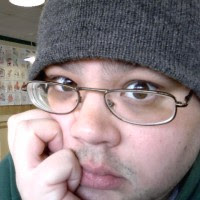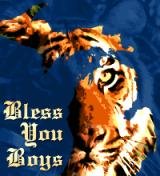I'm a couple of days late on this, but I'm not sure I could continue to have a blog and not write about David Halberstam, who was killed in a car crash on Monday.
Everything I've read and heard about him from friends and colleagues over the past two days mentioned how energetic and tireless a worker he was, so it has to be at least somewhat fitting that he died while on his way to conduct an interview. Halberstam was working on a book about the 1958 NFL championship game between the New York Giants and Baltimore Colts, which is considered by many to be the greatest football game every played. He was planning to talk to the quarterback of that Giants team, Y.A. Tittle. I became familiar with Halberstam through his sportswriting in books like Summer of '49, October 1964, and The Breaks of the Game. I was actually surprised to soon discover (and am now embarrassed to admit) that he wrote about a hell of a lot more than sports.
I became familiar with Halberstam through his sportswriting in books like Summer of '49, October 1964, and The Breaks of the Game. I was actually surprised to soon discover (and am now embarrassed to admit) that he wrote about a hell of a lot more than sports.
It was obviously naive of me, but I guess it never quite occurred to me that you could write about sports and also write about subjects such as failure of leadership during the Vietnam War, the evolution of the relationship between media and politics, and the formative influences of the 1950's.
As a journalism student and aspiring writer, I found it tremendously inspirational to realize that you didn't have to limit the interests and focuses of your work. Halberstam had a voracious curiosity, something I don't think any writer can exist without. The moment you stop being intrigued by anything, you're just phoning it in. And I don't think you could read any of his books and not sense that he cared deeply for what he was writing about.
Looking back at those journalism classes, I find it astounding that we never read The Best and the Brightest, an account of America's involvement in the Vietnam War and how the military and government misrepresented their intentions to the American people. (Sound familiar? It's scary to consider how much that book can be applied to what's going on today.) In his reporting at the time, Halberstam had the courage to point out that what he was seeing in Vietnam was not what the people were being told back home. And he had the conviction to stand up for the truth and his profession. In a tribute from today's New York Times, Eleanor Randolph cites a 1963 press briefing in Vietnam:
Mr. Halberstam recalled that the Army brass had been so angry about his coverage that a top officer had tried to order him not to ask to go with the troops. “And I stood up, my heart beating wildly — and told him that we were not his corporals or privates, that we worked for The New York Times and U.P. and A.P. and Newsweek, not for the Department of Defense.”
Has any journalist taken that kind of stand during the Iraq War? (And I'm not talking about now, after the fallacies are all too clear.) David Gregory bickering with Scott McClellan at White House press briefings is one thing. Telling an officer to shove it while covering a war, when the President of the United States is also demanding that your newspaper take you off the beat, is quite another. Hell yes, he won a Pulitzer Prize for his work.
What I find amazing is that Halberstam never let the skepticism and disillusionment he developed after his experiences in Vietnam destroy his appreciation for history and the people he admired. He could've decided to give it all up and isolate himself in some lake house with a bottle of booze after what he'd seen and been through. Or he could've become an obsessively negative curmudgeon who just constantly railed against authority and declared everything to be hopeless.
But Halberstam still had that curiosity. He enjoyed sharing his awe for those with impressive talent and achievements. Because he wanted to write. He wanted to tell stories, big and small. He'd tackle serious subjects, and then "take a break" by covering sports. One book would be about the decline of the American auto industry and the growth of Japanese carmakers. The next would be a profile of Michael Jordan. From there, he'd tell the stories of 12 firefighters who lost their lives on 9/11. And then he'd write about the friendship four men maintained over 60 years, going from professional baseball players to elderly men facing their mortality.
In 2000, Halberstam was the commencement speaker at the University of Michigan, and I remember my mother asking me if I was familiar with him. And I told her that Halberstam's work was so good that it made me want to be a writer. Yet it was also so good that it made me want to give up because there was no chance I could do anything like that. My dad enjoyed that line.
▪▪ "If you're a reporter, the easiest thing in the world is to get a story. The hardest thing is to verify. The old sins were about getting something wrong, that was a cardinal sin. The new sin is to be boring." -- David Halberstam













